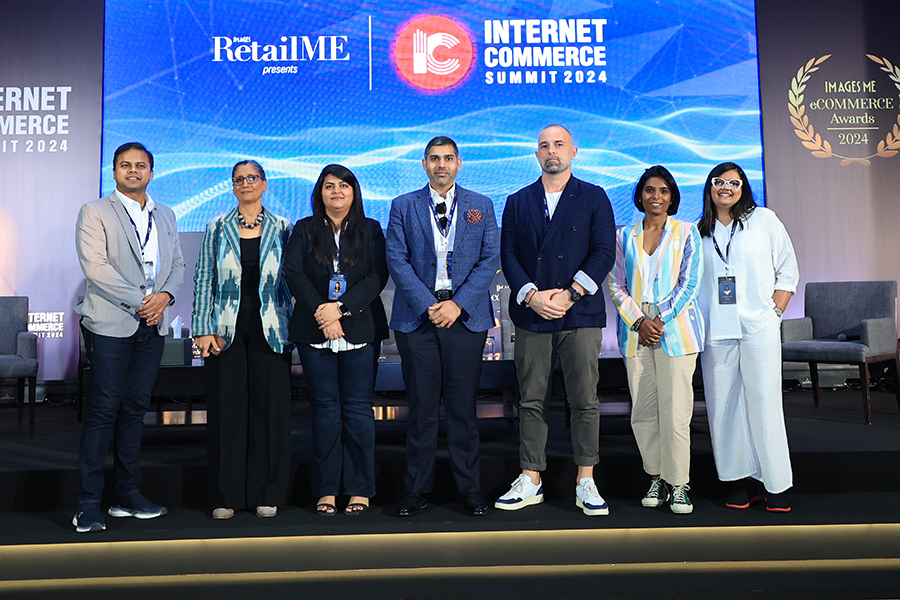
#ClickToChic: Decoding lifestyle e-commerce session, ICS MENA 2024
At a time when the digital economy is witnessing consistent growth and online shopping is getting even more sophisticated, what will shape the future of lifestyle e-commerce businesses?
Kickstarting the conversation at the Internet Commerce Summit (ICS) MENA 2024, Anurima Das, Executive Editor, IMAGES RetailME asked, “What is that unique selling proposition (USP) that sets these businesses apart?”
“We bring unique products into the Gulf region, and at the same time we take local brands from the region to rest of the world, aiming to eventually become a global platform of choice for sustainable fashion and lifestyle,” responded Deepthi Chandran Joyau, Founder, Only Ethikal.
Staying with sustainability, another UAE-based homegrown omnichannel brand with a unique name is JumeirahRoad.com. “Our mission is our USP, which is to showcase products and designs based on three principles handmade, upcycled and sustainable,” explained Deepika Tilak, Founder, JumeirahRoad.com.
Up next, DRESOS, an e-commerce fashion platform that delivers personalised outfits for men and women is focused on leveraging AI (artificial intelligence) for the platform to scale the business and eventually offer an outfit almost instantly based on customer preferences accessed through data they share, revealed Co-founder and Chief Executive Officer Vladimir Radojevic.
Another brand that excels in innovative use of tech within the in the athleisure category is Zaecy. “We use smart textiles to manage the moisture, use UPF materials in the clothes that enhances performance,” explained Head of E-commerce, Aditi Gautam.
“Our USP is centred around minimalism and simplicity of our product. It’s a universal product that aligns with any personality, any home and any kind of aesthetics,” added Abdullah Tariq, Founder & Chief Executive Officer of affordable luxury fragrance brand Colish.
“Our USP lies in our first mover advantage as our company was established in India 12 years ago when e-commerce in its current form didn’t even exist,” stated K Ram Sudhirr, Director – Acquisitions & Growth (GCC Countries) India Enterprises, GreenHonchos. “Over the years as the e-commerce wave happened, we grew exponentially in the India market offering brands one stop solution for all their tech-based requirements.”
At this point, Das steered the discussion towards building a brand for tomorrow focused on personalisation with a customer centric approach.
A McKinsey study indicates that 71% of consumers expect personalisation when they shop online and 67% of consumers expect to see relevant products. Yet, e-commerce players often fail to offer that level of personalisation.
“To enable a really personalised approach we gather two types of data – zero party data from our customers in the form of quiz to understand their preferences. Then we pair that with product data on size, colour, price, brand to deliver a personalised outfit experience which increases the average order value and basket size of each order and improves retention,” Radojevic shared.
Moving over to how technology helps to build the right product fit, Gautam added, “Prioritising customer focused products, having a highly efficient supply chain along with innovation and agility help us to keep up with trends and minimise our inventory risk. While technology plays a significant role in our product development from smart textiles.”
Raising a pertinent question, Das asked since tech-based investments tend to be high what’s a good starting point for brands?
Be it supply chain, automation or other functionalities, it’s important to not get swayed by what technology has to offer. It’s crucial to keep the customer at the centre of tech-based decision making, ensuring that the path to purchase becomes easier while enhancing the customer experience, Sudhirr recommended.
Is it really that simple, however, especially for brands like Colish?
“The biggest challenge for any fragrance brand is to sell without smelling. So, we focus on making the buying process as simple as possible offering depth of information about the fragrance, coupled with customer interaction touchpoints while also leveraging the power of influencers to build resonance with the community,” Tariq responded.
For a slow fashion brand like JumeirahRoad.com, Tilak pointed out the importance of curation and storytelling to showcase the uniqueness of their products and engage with customers sharing the narrative behind each product and how they are different.
Talking about customer centricity, an obvious question is the cost of customer acquisition and retention especially for small businesses.
In this context, Joyau said, “When we started the business in 2019, we had to spend a lot on customer acquisition to build awareness, explaining and educating them about our products, processes and pricing and this exercise helped us to build a solid customer base. Ove the years, we have improved our customer experience having a direct correlation with customer retention which is an expensive proposition as we have to invest in technology, loyalty programme and so on.”
In a constantly evolving retail landscape with rapidly changing customer preferences its crucial to keep it relevant and simple for the customer. “Focus on the product that brings back the customer, not the strategy,” Sudhirr concluded.